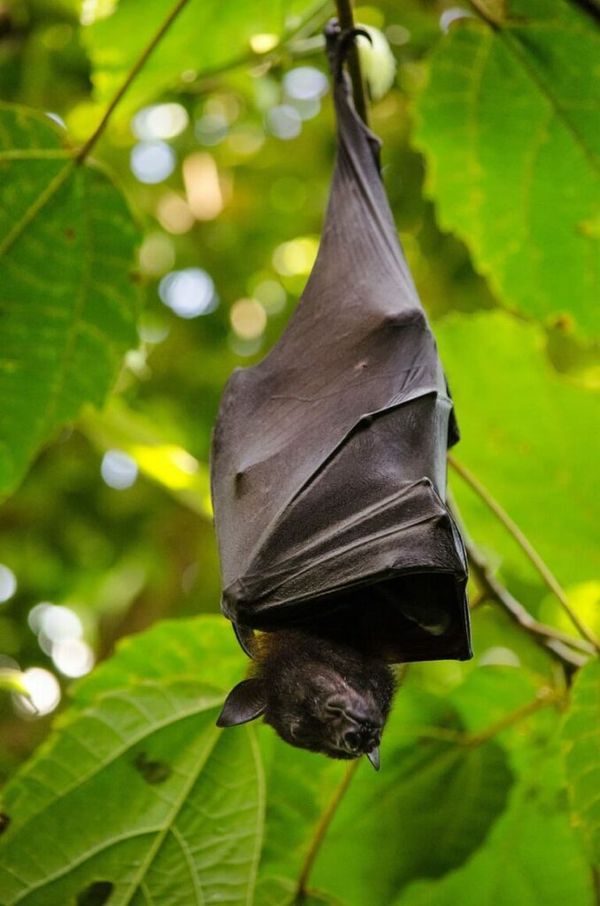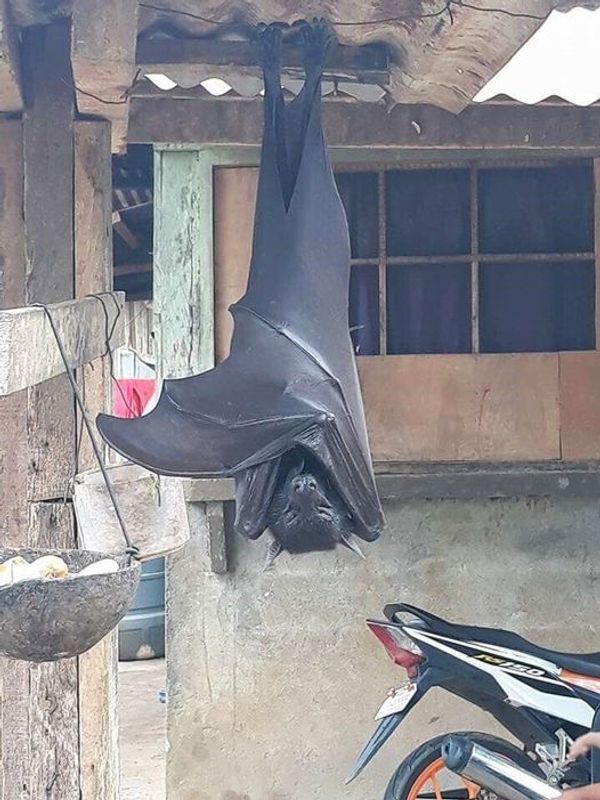Have you ever seen those viral images of “human-sized” bats? They may have caused some fear and intrigue, but it’s time to set the record straight and appreciate these incredible creatures. Let’s delve into the world of the golden-crowned flying fox bats, whose survival is under threat due to deforestation and hunting.
Surprising and Harmless
At first glance, the golden-crowned flying fox bat may seem intimidating with its broad wings and lean, hairy body. It resembles a winged vampire, which can certainly capture attention. However, don’t let its appearance deceive you. These fruit-eating megabats are completely harmless and pose no threat to humans.
Endangered and in Need of Our Help
Sadly, the golden-crowned flying fox bats face numerous challenges. Their natural habitat is rapidly shrinking due to deforestation and human encroachment. Furthermore, illegal hunting for sport or food has pushed them towards the brink of extinction. Helplessness and vulnerability are evident in the viral photographs that have both intrigued and concerned people.
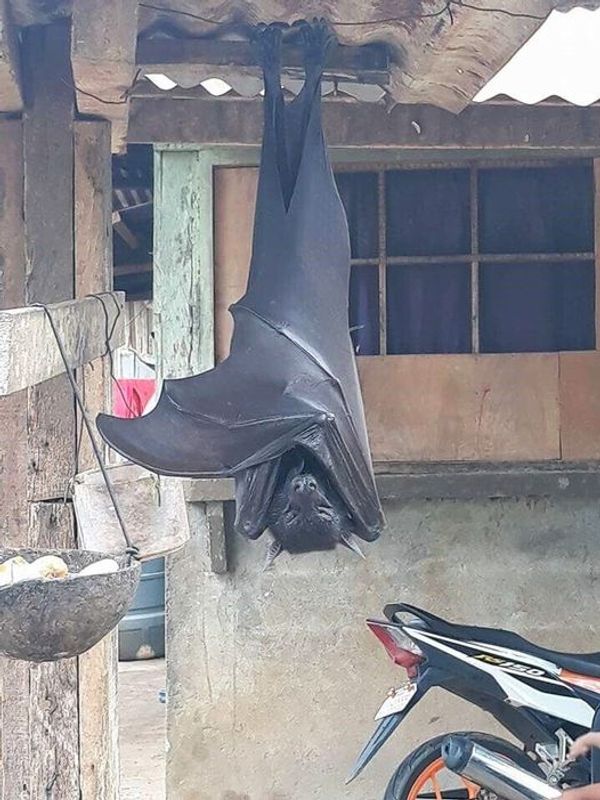
Dispelling the Misconceptions
It’s important to clarify some misconceptions surrounding these remarkable creatures. While some mistakenly believe they are “human-sized,” their actual size is quite different. These bats have a wingspan of around 5 feet and 6 inches, with a body ranging from 7 to 11.4 inches and weighing less than 3 pounds. Comparing them to a small child instead of an average adult human provides a more accurate perspective.
Unique and Fascinating
The golden-crowned flying fox bat, also known as Acerodon jubatus, is found exclusively in the Philippine jungles. They often live in large colonies, with some groups boasting up to 10,000 members. These bats are nocturnal creatures that feast on figs, roots, fruits, and vegetables in the darkness. Their heads are even adorned with a fluffy golden crown!
Defenders of the Forest
Contrary to popular belief, these bats do not rely on echolocation but instead use sight and scent to navigate through the air. They play a crucial role in reforestation by spreading fig seeds after their meals. Unfortunately, the more they contribute to the ecosystem, the more damage humans inflict upon them.
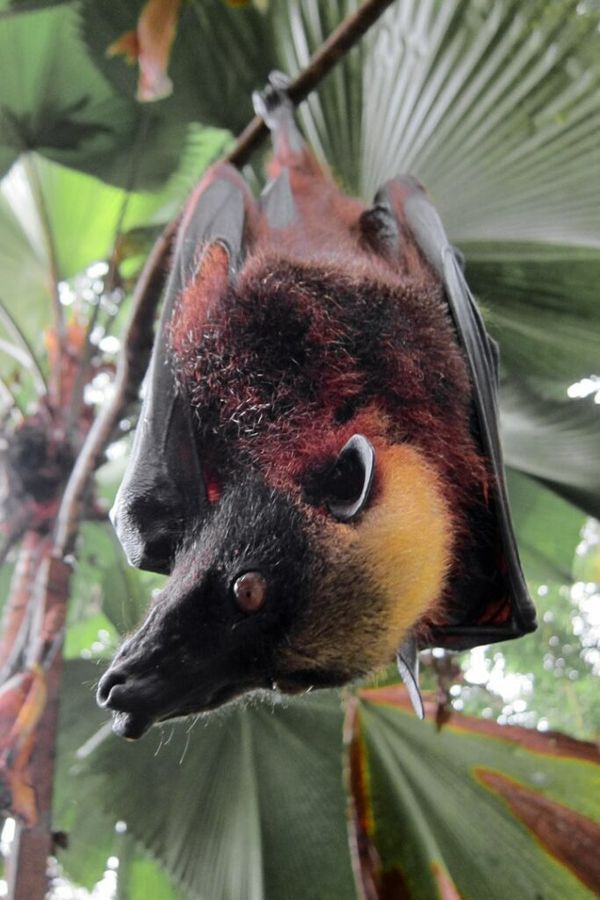
Losing Their Home and Fighting for Survival
According to Bat Conservation International (BCI), over 90% of the old-growth forests in the Philippines have been destroyed. This devastation has caused the golden-crowned bat population to disappear from numerous islands. Since 1986, their numbers have plummeted by 50%, primarily due to habitat destruction and hunting. Consequently, the International Union for Conservation of Nature (IUCN) lists them as an endangered species.
A Challenging Battle Ahead
Although the Philippine Wildlife Resources Conservation and Protection Act of 2001 offers some protection to bats, its enforcement remains inadequate. Even in protected zones, mass killings occur, with hunters shooting bats as they sleep. This act is both brutal and heart-wrenching. These beautiful animals often meet their end still clinging to branches, unable to escape their tragic fate.
Coexisting with Humans
Despite the dangers posed by humans, golden-crowned flying foxes are not afraid of us. You may encounter them near forests, perched on utility poles, or even in urban areas, where they feel comfortable. They have the ability to distinguish between safe and unsafe environments, often choosing secluded areas for their roosts.
Research has shown that these bats are remarkably intelligent and have impressive learning abilities, similar to dogs. They can learn and remember tasks even after extended periods of time.
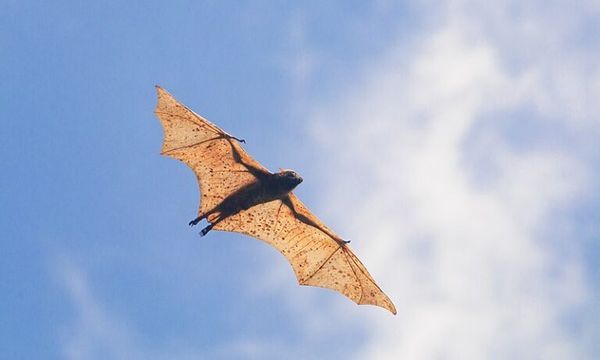
Joining Forces for Conservation
It’s time to overcome our fears and appreciate the golden-crowned flying fox bats for the incredible creatures they are. Only three out of 1,300 bat species consume human blood. These bats are harmless and deserve our protection.
Let’s come together and raise awareness about the endangered status of these innocent animals. We must address deforestation and hunting to give these bats a fighting chance at survival. Together, we can make a difference and ensure that their delicate existence continues to grace our world.
